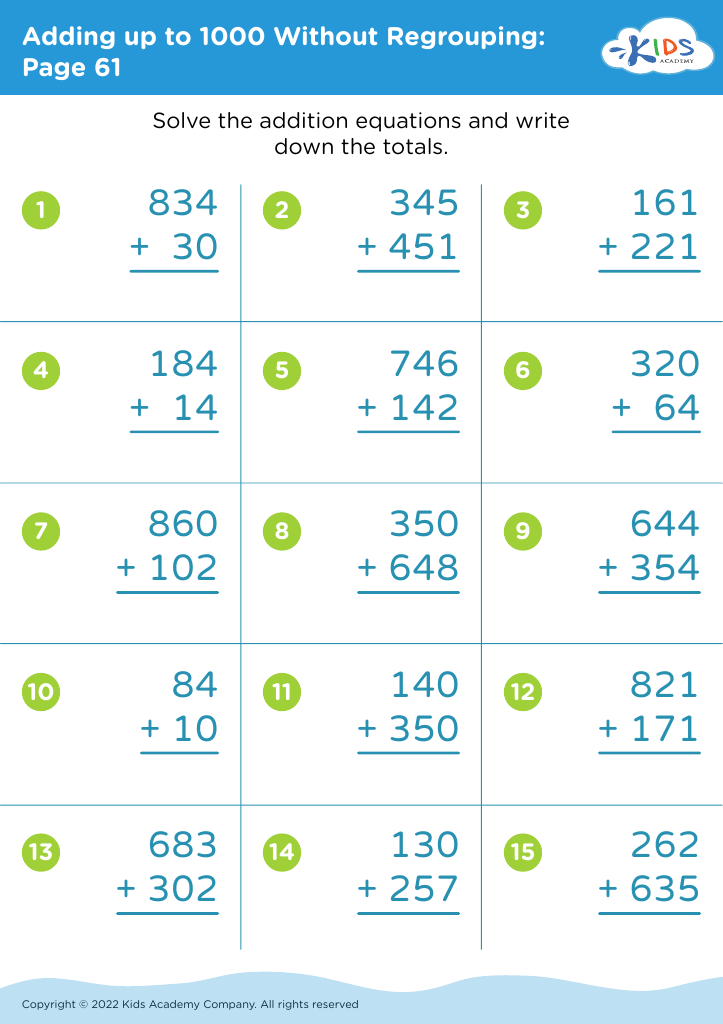Basic Addition Adding up to 1000 Without Regrouping Worksheets for 7-Year-Olds
4 filtered results
-
From - To
Discover our engaging "Basic Addition Adding up to 1000 Without Regrouping Worksheets” designed specifically for 7-year-olds! These worksheets provide young learners with ample practice in simple addition without the complexity of regrouping, helping to build confidence and strengthen foundational math skills. Each worksheet features clear and colorful designs that capture children's interest while offering a variety of problems to solve. Parents and educators can easily incorporate these resources into lessons or homework, making math fun and accessible. Ideal for reinforcing classroom learning or supporting homeschooling efforts, our worksheets are a fantastic tool to lay the groundwork for future mathematical success!
Understanding basic addition, particularly when adding up to 1000 without regrouping, is foundational for 7-year-olds. It establishes essential math skills that support future learning. When students grasp the concept of place value and simple addition, they build confidence and a positive attitude towards math, which can influence their overall academic journey.
For parents and teachers, prioritizing this skill helps children develop critical thinking and problem-solving abilities. Mastery of basic addition promotes numerical fluency, enabling children to approach more advanced concepts like subtraction, multiplication, and division with ease. Additionally, the ability to add numbers up to 1000 without regrouping encourages concentration, patience, and attention to detail.
Moreover, fostering a conducive environment where children can practice basic addition plays a vital role in improving their cognitive skills. It allows for the application of math in real-life situations, enhancing overall comprehension. Parents and teachers can use everyday scenarios, such as shopping or cooking, to illustrate the importance of math in our daily lives. Thus, the focus on basic addition not only develops mathematical skills but also encourages a positive attitude toward lifelong learning, ensuring children are well-equipped for their future educational endeavors.














